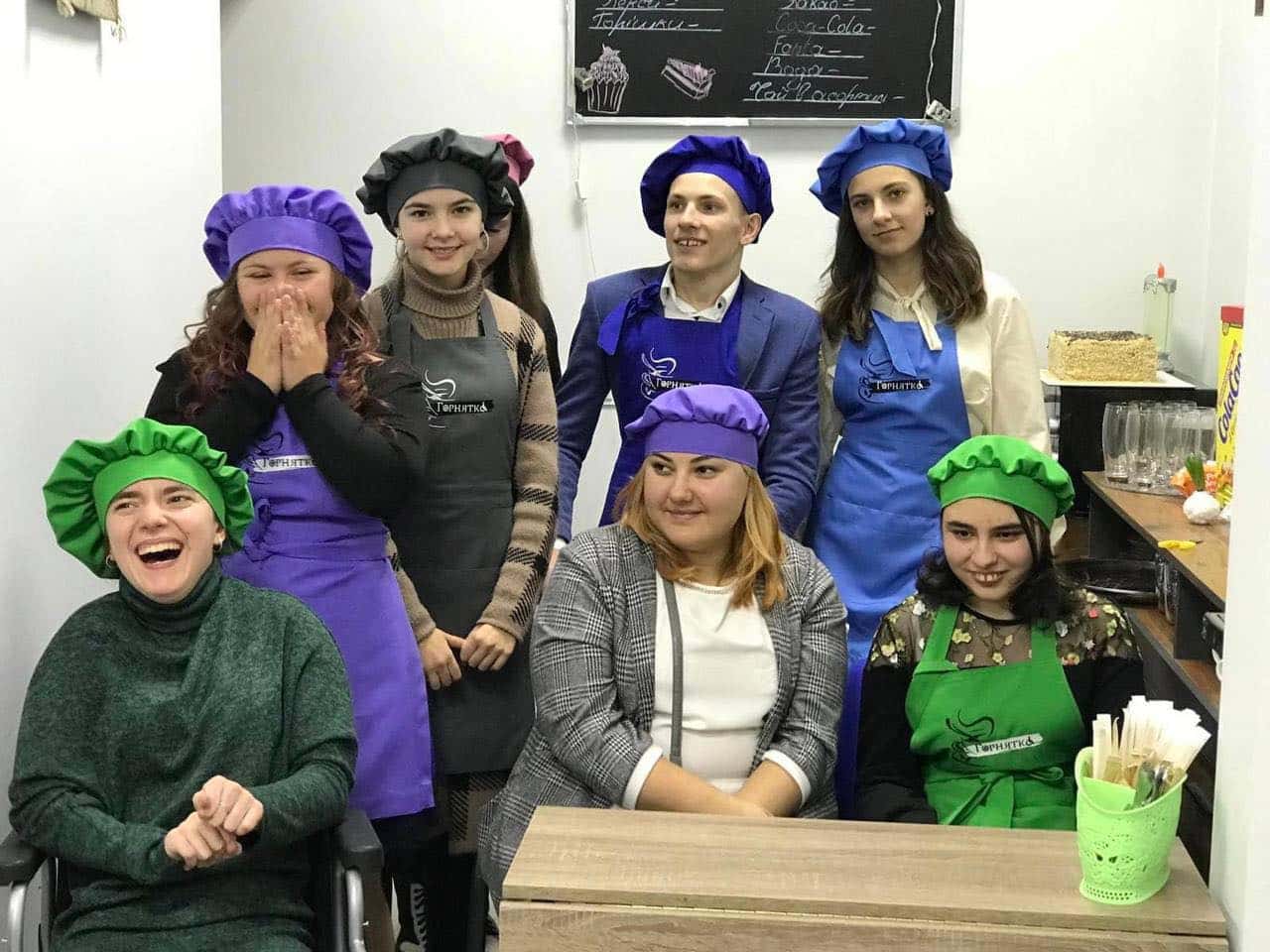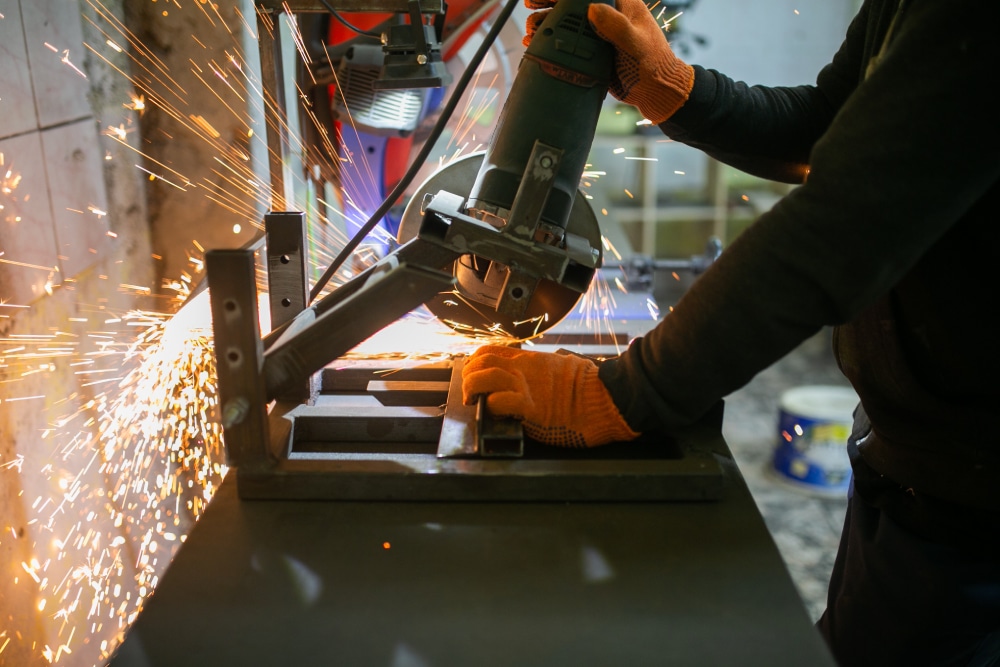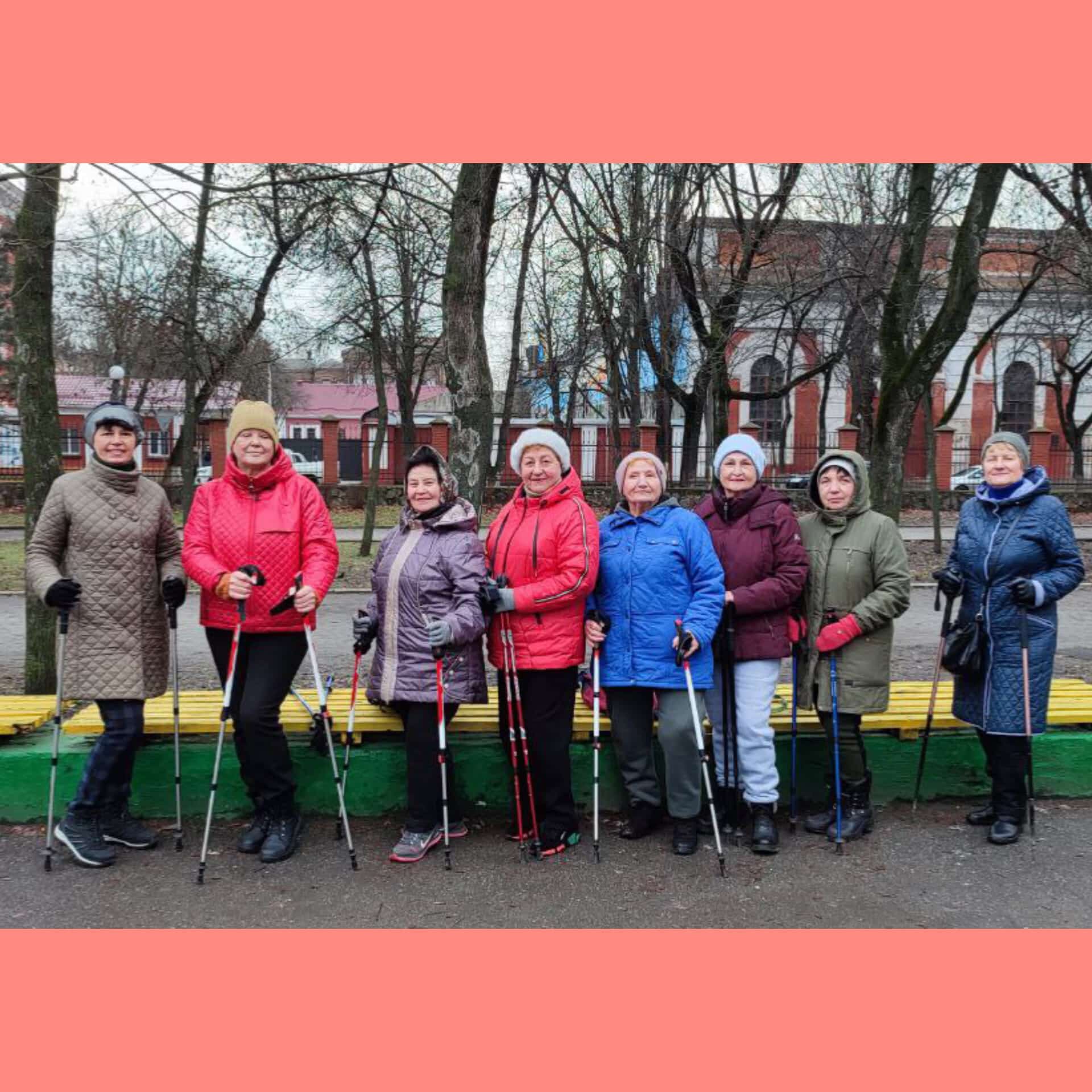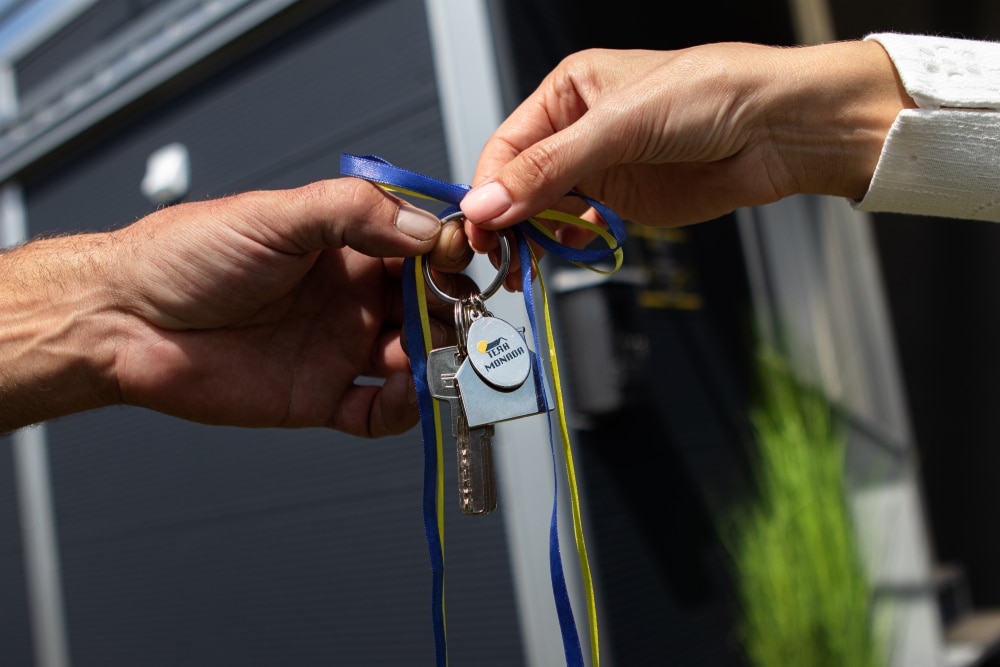Behind Blue Eyes is a project where volunteers made children’s dreams true. Little creatives had an opportunity to shoot on disposable film cameras the reality and events in their native Lukashivka village in the Chernihiv region as well as capture life during the war through their eyes. So the volunteers decided to help these children’s dreams come true, as someone has received a dream bicycle, while someone else has gotten their first camera to practice photography. On their Instagram page, the project’s founders publish photos and stories of the kids, and the best photos made it to the exhibition in Kyiv.
Festival of Kindness
Artem Skorokhodko and Dmytro Zubkov work in the marketing and PR field. They are absolutely sure that the war shouldn’t take away someone’s childhood. Children have to be always busy with something, they have to be always learning and being creative. That’s why the guys have come up with the idea of the Behind Blue Eyes project.
«People usually have different priorities in the village, such as getting an education, learning equipment, working with your hands, and being able to provide for your family. Creativity is not considered to be something of such a great priority for the village people. They rarely see it as something serious and a possibility to build their careers in this field. But we would like to show children that creativity is an integral part of life,» says Artem.
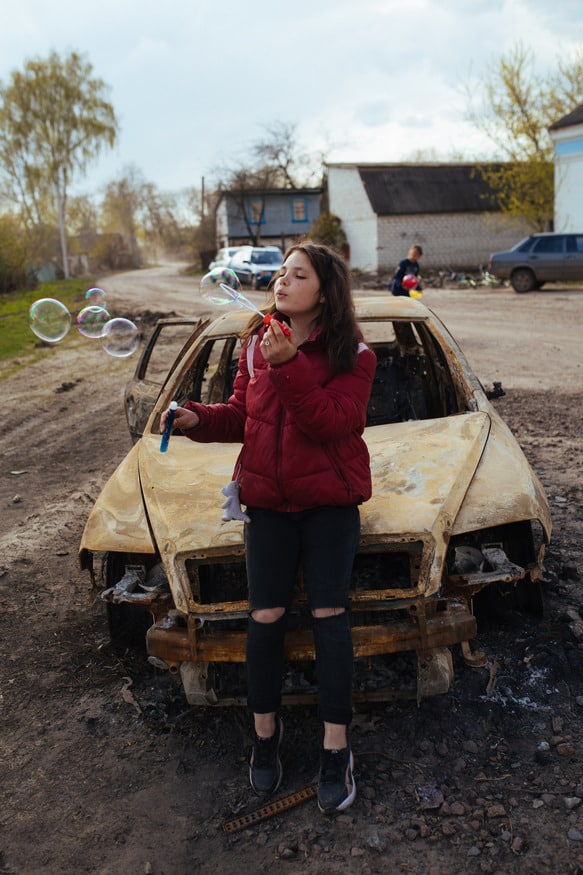
Since the beginning of the full-scale war, Artem and Dmytro decided to help. Young men would drive to the de-occupied villages in the Chernihiv region and deliver humanitarian aid to people. They were helloing three villages: Yagidne, Sloboda, and Lukashivka. They helped residents with what they needed. There were surprisingly many children in the village of Lukashivka though. Young men would visit this village every weekend. They decided to set up their humanitarian headquarters in the building of the former grocery store right in the village center. When the volunteers would come, there was a real festival of joy and happiness happening there: locals would gather in the village center, arriving on their bicycles and motorbikes.
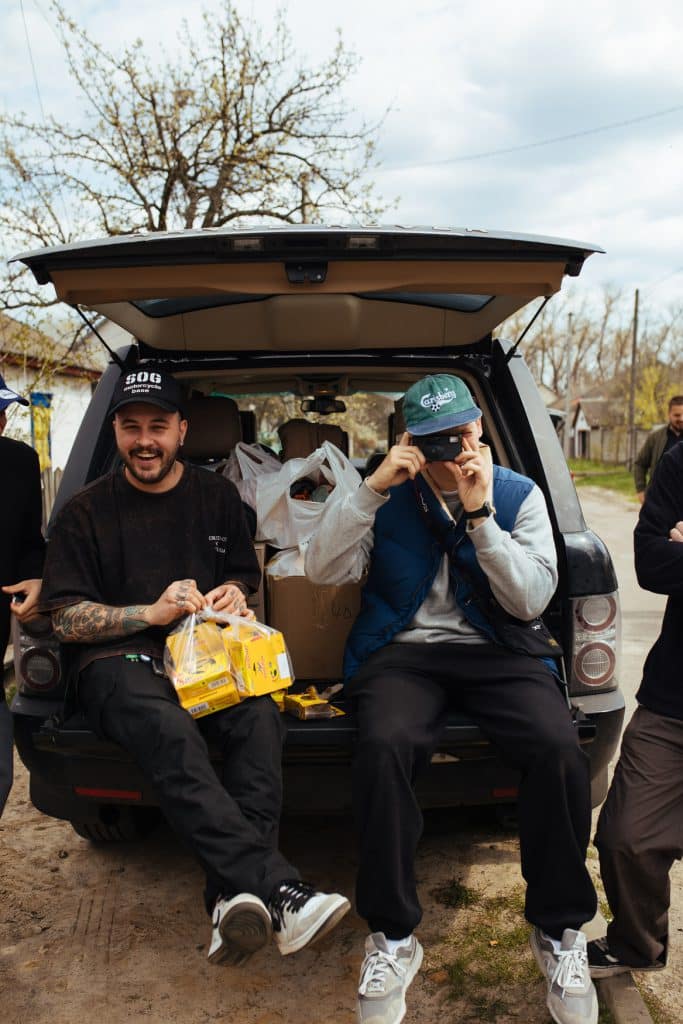
«In Lukashivka, we saw children that we used to be too some time ago. Children who go for a walk in the morning, come back home late in the evening, or sometimes maybe don’t even come home at all for some time, even for the dinner,» says Dmytro.
A special visit
One day the guys decided to make one of their regular visits to Lukashivka really special. They remembered the kids and the warmth they eliminated, and it made them decide to organize something special for these children. In addition to the general humanitarian aid, volunteers also brought kids some new toys, ping-pong rackets, balls, etc. Moreover, the volunteers also decided to use this visit to implement an idea they’ve had for a while in their creative archives.
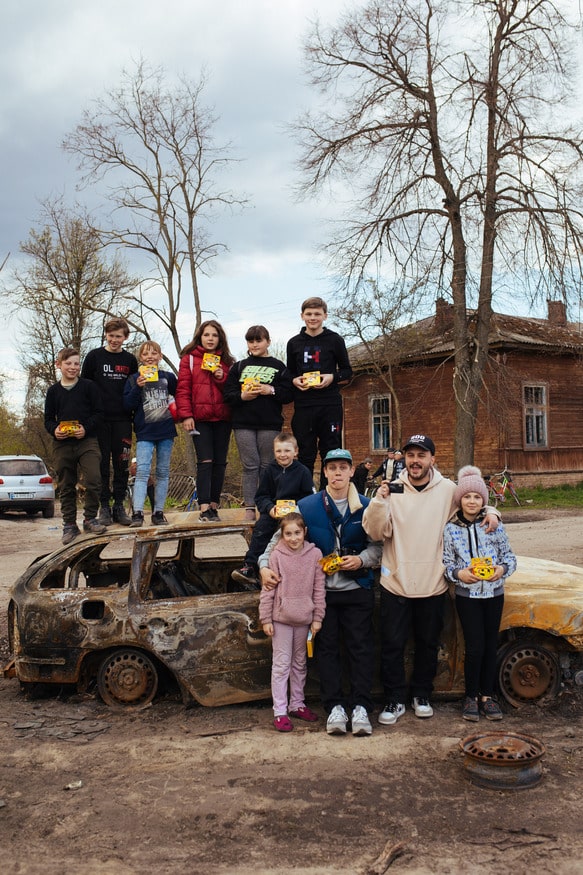
Initially, the guys were planning to use disposable film cameras for some sort of commercial project. But here, in Lukashivka, they changed their mind and decided to use this idea here. They understood that they had everything they need to make it happen, so they decided to not hesitate and make this idea true here and now.
«We’ve seen local children, and they were so open and so sincere. They didn’t only find in themselves the strength to survive the Russian occupation but they also have enough energy to play soccer, come up with crazy stories, dream, create, and force us, grown men from Kyiv, to ground ourselves a little bit and to experience hope, joy and even inspiration. We were so confused and at the same time so amazed by this communication with these kids, that we started thinking about how we could share these amazing feelings with other people as well, especially with those people who probably don’t even have the strength now to get out of their pits of despair right now. And now the puzzle has finally come together,» says Artem.
So Artem and Dmytro have purchased disposable film cameras, and they got two of them. While giving away toys and balls for the children, the young men also offered them these disposable cameras. Some kids got interested in these devices right away, while some others paid more attention to the balls and toys at the beginning. However, there were nine kids at the end who demonstrated a strong wish to photograph with these cameras. One of these cameras was a test camera, so we’ve figured out how the other cameras work with the help of this test one.
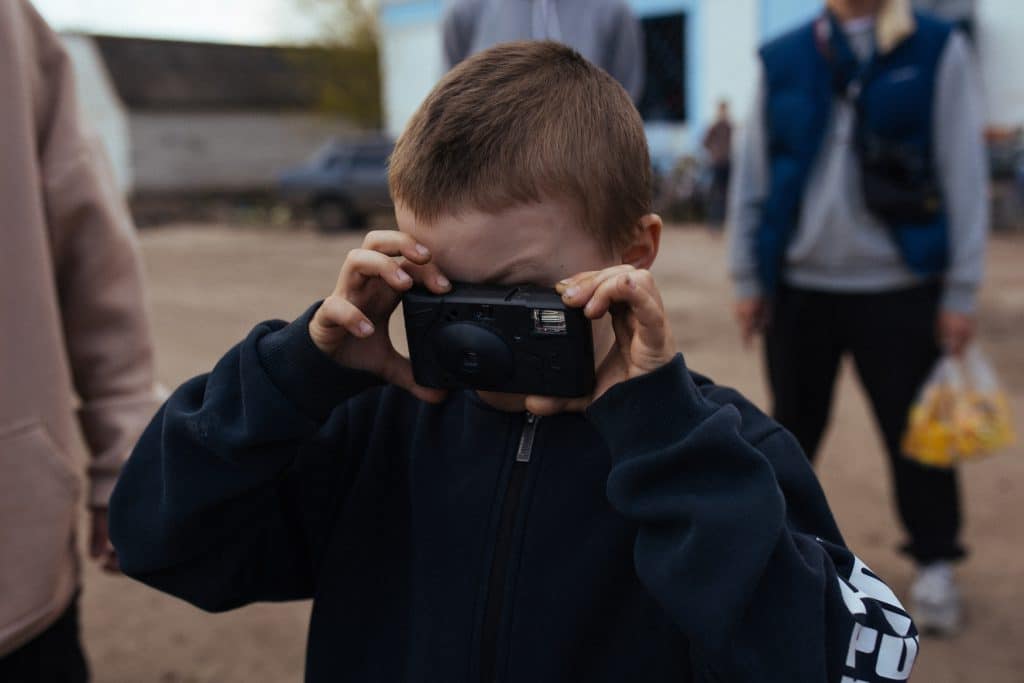
«That’s another story to tell, as for the kids of the 90s oil, photography is still quite familiar, close, and even a little bit romanticized. But these children are so young that they have no idea at all how the film camera works. When we gave them one of the cameras to test they didn’t even know at the beginning how to turn that thing on and what to do to not expose the film right away. But they were so into this that they would grab any information and idea about it and see it as a great adventure,» says Dmytro.
When volunteers gave the kids their cameras they were thinking at the beginning that the great victory for them would be to simply get these cameras back afterward. Next week they came back to Lukashivka and suddenly got eight cameras returned to them.
«This is an incredible result and our expenses were relatively low. We gave the film to develop it, and the next week we came to the village again and brought humanitarian aid with us. And suddenly our «ninth film camera» approached us. In our rear mirrors, we saw that a local boy Tema, who is only 7 years old and is our youngest participant, was using his bicycle and trying to reach us. He can’t even read and write yet, but he is such a great guy! The boy gave us his camera back. The camera was all dirty dusty and wet, as he was busy riding his bicycle to catch us,» recall the volunteers.
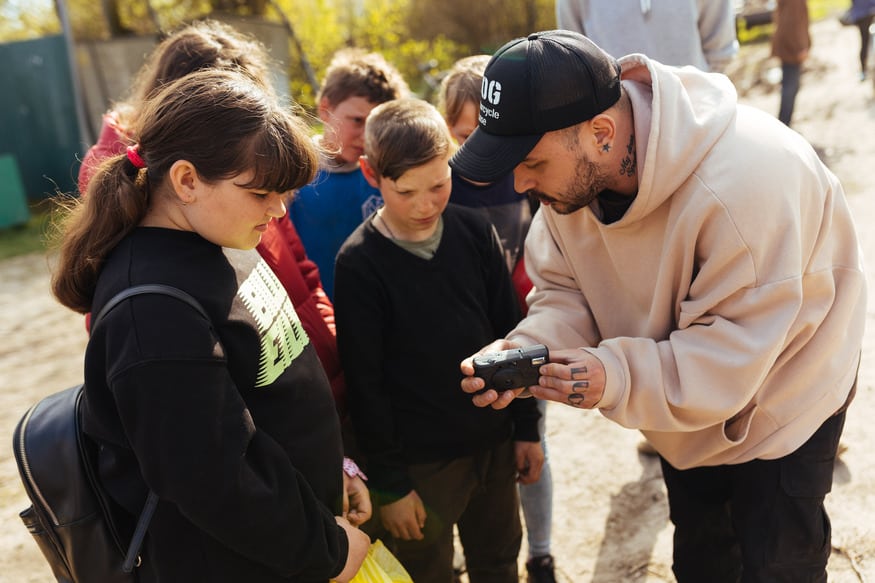
«It was something unbelievable. Children actively participated in the process, and one can see in many photos that often they were indeed trying to work on their composition and their concept. Every photograph demonstrates a personality and its unique traits. Someone made a portrait of their friend, someone else chose to photograph animals, other kids preferred to make self-portraits, while others would document missiles in their yard. One of the photos showed an Adonis scene from the 90s, with a young boy and a girl hugging each other at a bus stop. But if one looks closer one can see that the bus stop was riddled with gunshots,» says Dmytro.
An interesting approach
Volunteers understood right away that they needed to work on that material further. They printed the photographs, signed them, put them into the envelopes, and gave them to the kids. And then they interviewed the children who had a chance to comment on their photography and explain their creative vision. That was when the guys came up with an interesting approach to this situation. They didn’t ask children what they would want to get as a gift, they started asking them how the kids have spent their previous birthday.
And then it would turn out that most of these kids had their birthdays under the Russian occupation. So the kids were offered to write their Wish Lists that nobody else will be able to see (spoiler alert: this is not true), and the volunteers saved all these lists. Children didn’t really wish for anything crazy, they mostly wanted very simple things, sigh as to spend a peaceful evening with their parents or to get a new bicycle as a present.
The volunteers were raising money just like they would do for any other project, using MonoBank, PrivatBank, and PayPal. However, in their communication, they would never use a direct call to donate, and the link to their donation page was published in an Instagram story just once. Then the word of mouth has done its job, and more and more people really wanted to help fulfill children’s dreams, so they would find that link and would share it again and again in their stories.
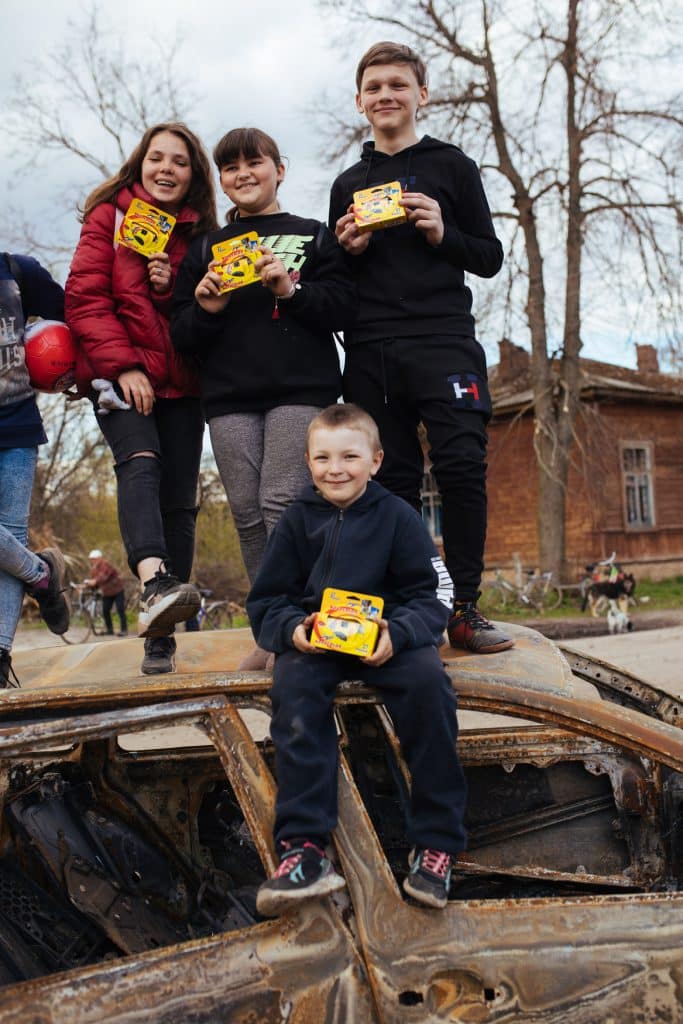
The guys have raised enough money to make true the dreams of all the children from the de-occupied Lukshivka village. A little girl Masha received a tiny chinchilla, and this wish was the only one that invited other living creatures. The volunteers’ favorite boy Bohdanchyk has received a mini-motorbike. As it turned out, it wasn’t just a childhood dream for this little boy, for him it was a real dream of his life, and he was saving money to get this mini-motorbike but tried to keep it a secret from his parents.
While thinking about the photos that the children made, Artem and Dmytro have trouble choosing their favorite photo.
«There are a lot of important shots there, however, I think that I would choose a photograph with the dandelions. There is a combination of incredible and lively colors in this photograph, and it all emanates the real joy of life. We’ve been thinking a lot about why the child decided to make this particular photograph. Was it a conscious decision?»
«I also think a lot about the gesture itself, when we hold the camera in our hands and then shoot something from the first person perspective. This is such an Instagrammable gesture. However, adults usually shoot some material stuff like this: here is my cocktail, here is my pathetic car wheel, here is some sponsored cosmetics, etc. But a child doesn’t care about it all yet, a child just gathers flowers and looks in the sky with interest,» says Artem.
«Behind Blue Eyes» is an English idiom that refers to a human condition when their inner feelings, emotions, and sufferings cannot be detected based on how the person looks. As Artem and Dmytro thought about it, it was also quite relevant to the children from Lukashivka village. Horrors of the occupation couldn’t leave without a trace, unfortunately, however now, just talking to these kids, it might be even hard to imagine that they went through such a horrible experience. In addition to that, the blue color is almost as important for the Ukrainians, as the yellow color.
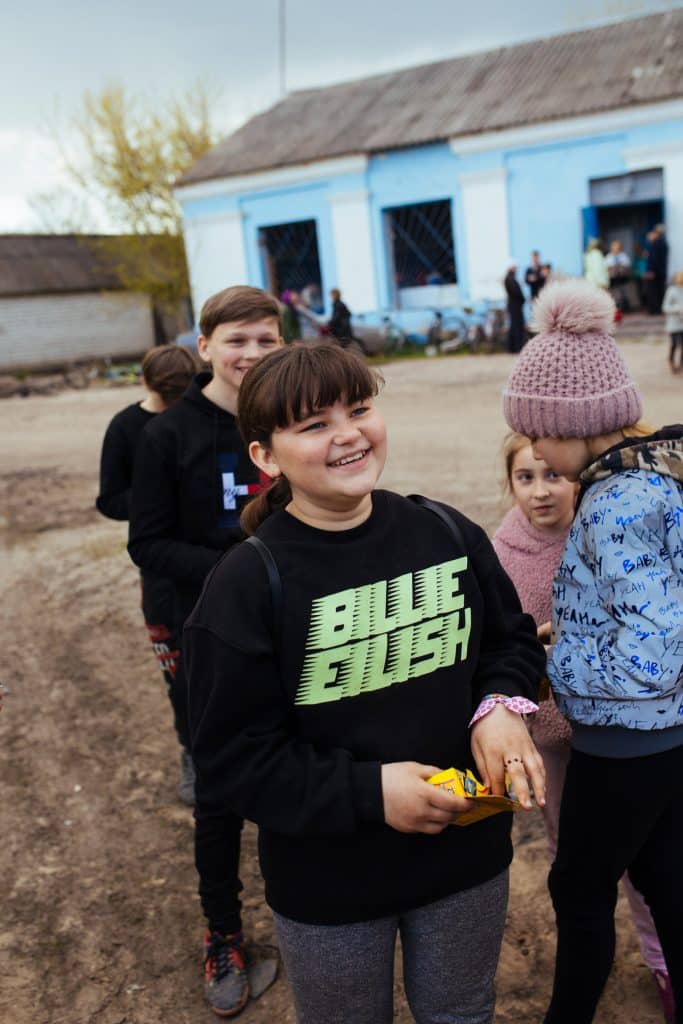
The volunteers want to use the same format to work with the children from the de-occupied and frontline villages from the Sumy to the Kherson region. And the way to help them is by starting to help ourselves and trying to return to an easier and more joyful mindset, and one can do it with the help of children’s stories on this project’s official page.


